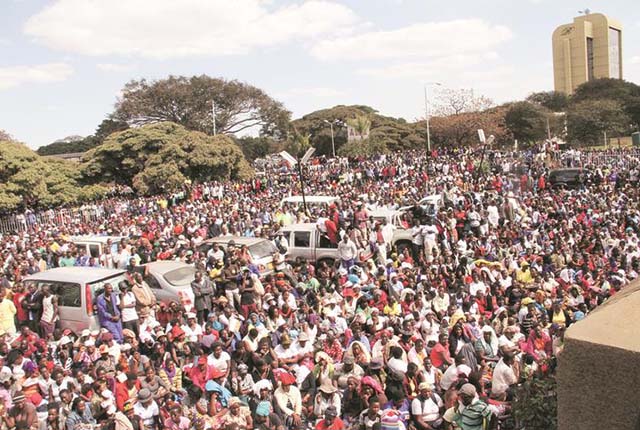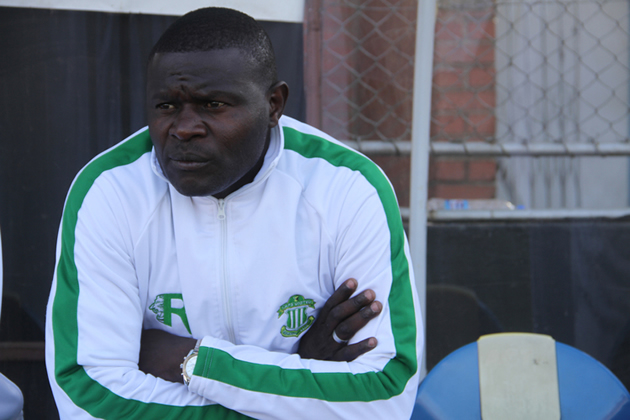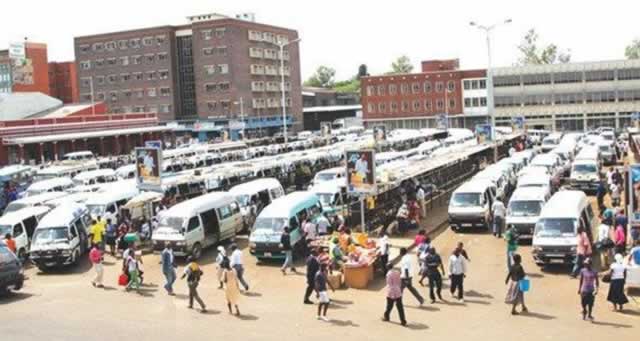Zanu-PF still the only game in town


Thousands of zanu-pf youths gather at the revolutionary party’s headquarters in Harare recently for a Youth League inter-district conference. —(Picture by John Manzongo)
Lovemore Ranga Mataire Senior Writer
The recent massive demonstration by ZANU-PF youths in support of the ruling party’s empowerment policies effectively silenced all those who had discounted the revolutionary party as having lost ground and its appeal among the masses.
In their tawdry political dreams largely based on armchair political analysts who frequent the social media, a number of opposition supporters had confused the civil service stayaway as evidence of the waning political fortunes of the ruling party.
It was thus crucial for the ZANU-PF Youth League to respond by mobilising youths within a short space of time as a show of not just its capacity but also proof that it still enjoys massive support even among youthful urbanites.
The gathering was not just a hollow rhetorical rally.
The ZANU-PF Youth League used the gathering to brief its members that their request for stands had been approved by the President.
This is the pragmatism that has sustained the revolutionary party over the years and evidence that its broad-based empowerment policies are abound everywhere. The land reform is one such fundamental empowerment exercise.
But there are a lot more reasons why ZANU-PF has continued dominating the political scene since independence despite a barrage of vilification of its leader by the West.
One of the reasons is its foundational ethos as socialist oriented party, which among other things, emphasises the need for equality among all races, tribes and classes.
Over the years, the party has managed to adapt to the social, political and economic dynamics by taking cognizance of the growing number of the youth who have joined its ranks. Its pro-poor and pro-majority policies have found favour among the youths and the generality of the populace because of their enduring nature.
The party’s affirmed brand of socialism does not put emphasis on class struggle but has a dose of a democratic dimension which makes it different from the bureaucratic despotism that led to the collapse of a number of governments and parties in Eastern Europe.
The enduring nature of ZANU-PF’s socialist ideology is that it is accommodative of both the private and public sector working in sympathy with each other, not in contradiction. The two are partners in development and are not antagonistic forces.
The brand of socialism espoused by ZANU-PF is a socio-economic philosophy which guarantees freedom of the Press, expression, association, assembly, independence of the judiciary and adherence to the rule of law.
The protection, security, development, happiness and the satisfaction of the basic needs of individuals are central to its beliefs and this is the reason why tribalism, regionalism, ethnic chauvinism, racism and nepotism are an aberration to the existence of the party.
It is this brand of socialism that has continued to be the guiding principle of ZANU-PF and to a greater extent has received tremendous support from the majority of Zimbabweans, especially those in rural areas who easily identify with the party not just as a home-grown entity but also as having their interests at heart.
But the fact that ZANU-PF embraces socialist ideals does not fully answer the question of why it has continued to enjoy tremendous support among the majority Zimbabweans 36 years after independence.
The gullible lot among the opposition forces would want us to believe that ZANU-PF has continued winning elections through unorthodox coercive means. Nothing can be further from the truth. The truth is that ZANU-PF has continued to dominate the political arena because its policies have remained focused on mass empowerment as opposed to being “boss boys”.
It is also an indisputable fact that the revolutionary party has remained popular and more visible because it is structurally strong given its grassroots support which manifests through cells, branches, district to provincial level.
Through the iconic leadership of President Mugabe, the party has over the years convinced the electorate that it is the only party capable of fulfilling the aspirations of the liberation struggle. It recorded successes in education, indigenising the judiciary, local governance systems and other critical facets of the nation-state are there for everyone to see.
What has remained clear among the electorate is that voting for ZANU-PF will ensure that the country, its wealth, its resources, its land and its sovereignty will not be surrendered to colonial Britain, white Rhodesians or black sell-outs in the opposition.
There are other fundamental milestones associated with ZANU-PF that cannot be wished away by any form of political mudslinging. It is ZANU-PF which ushered in a peaceful dispensation by espousing the national reconciliation policy calling all Zimbabweans to bury the past. Very few Africans have the vision of President Mugabe who set the tone for national cohesion through his seminal speech urging citizens to turn guns into ploughshares and not yield to the spirit of revenge.
As a democratic revolutionary party, ZANU-PF is not averse to multi-party politics as exemplified by the emergence of a plethora of opposition parties including the Western funded and founded MDC-T. The presence and participation of these political parties does not diminish the fact that they were founded with a clear agenda to install a malleable regime in Zimbabwe.
Most if not all opposition political parties suffer from ideological bankruptcy as their leaders are not focused on mass economic empowerment.
While turbulences are commonplace in political formations, ZANU-PF clearly has a way of wriggling itself from awkward internal contradictions unlike the opposition which has suffered perennial leadership crises, particularly the MDC-T.
It is not a contested view that Morgan Tsvangirai lacks the aptitude and astuteness to manage not just the affairs of his party but his own personal affairs. MDC has survived to this day through the benevolence of ZANU-PF, which gave it a lifeline through the inclusive Government after its leader had boycotted the second round of Presidential elections in 2008.
With 2018 on the horizon, ZANU-PF’s mobilising machinery stands ready to galvanise its solid structures around its candidate, President Mugabe.
The revolutionary party remains the only game in town despite the frenzied social media attacks.









Comments